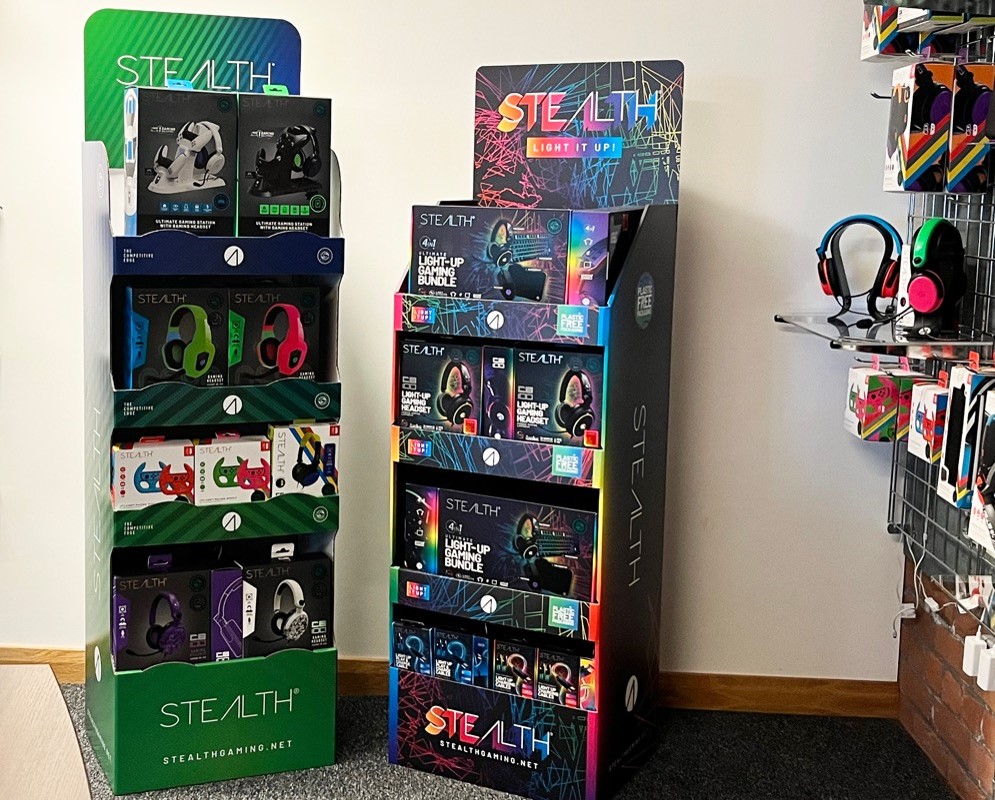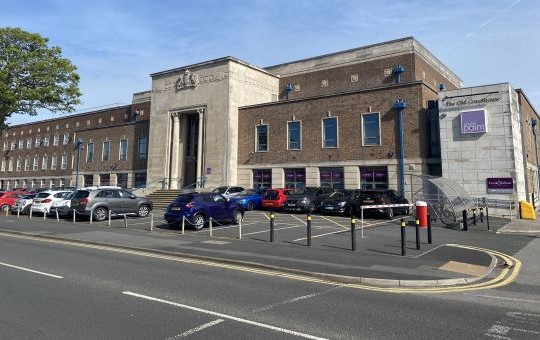ABP Technologies: Case Study


Navigating the Digital Landscape: Microsoft vs. Google environments in schools
In the rapidly evolving landscape of education technology, the choice between Microsoft and Google environments is a critical decision for schools.
Each platform comes with its own set of advantages and challenges, particularly in the areas of management, security, and licensing.
In this blog post, we will explore the top five pros and cons of both Microsoft and Google environments to help schools make informed decisions for their digital ecosystems.
Here are key considerations for each platform:
- Familiar Office Suite: Microsoft Office Suite (Word, Excel, PowerPoint) is widely used and familiar to educators and students, reducing the learning curve and facilitating seamless integration into existing workflows.
- Microsoft Teams Collaboration: Microsoft Teams serves as a comprehensive collaboration hub, integrating chat, video conferencing, file sharing, and collaborative document editing in one platform, promoting efficient teamwork.
- OneDrive Cloud Storage: OneDrive provides cloud-based storage for files and documents, ensuring accessibility across devices. This is especially beneficial for users within the Microsoft ecosystem.
- Co-Authoring and Editing: Similar to Google Workspace, Microsoft Office allows for real-time co-authoring and editing of documents, encouraging collaborative work on projects and assignments.
- Integrations with Learning Management Systems (LMS): Microsoft tools seamlessly integrate with various learning management systems, providing a unified experience for educators and students as they manage coursework and assignments.
- Real-time collaboration: Google Workspace tools (Docs, Sheets, Slides) allow for simultaneous real-time collaboration. Multiple users can edit documents simultaneously, fostering a dynamic and interactive learning environment.
- Google Classroom Integration: Google Classroom streamlines the distribution of assignments, facilitates communication, and provides a centralised platform for students and teachers to collaborate on coursework.
- Cloud-Based Storage: Google Drive offers cloud-based storage, enabling easy access to documents from any device with an internet connection. This allows flexibility and accessibility for both educators and students.
- Communication Tools: Google Meet and Google Chat provide communication solutions for virtual classrooms, meetings, and discussions, enhancing overall collaboration and engagement.
- Version History and Revision Tracking: Google Workspace applications automatically track version history and revisions, allowing teachers to monitor changes made by students and enabling easy rollback if needed.
Considerations for Both Platforms:
- Security and Privacy: Both Google and Microsoft prioritise security features such as encryption, authentication, anti-virus and data loss prevention. Schools must evaluate and ensure that the chosen platform aligns with their privacy and security policies.
- Cross-Platform Compatibility: Consider the compatibility of each platform with different devices and operating systems. Both Google and Microsoft offer web-based solutions, ensuring access from a variety of devices.
- Training and Support: The level of support and available training resources for educators is essential. Schools should assess the availability of tutorials, documentation, and user communities to assist in the adoption of collaboration tools.
- Licensing and Cost: Evaluate the licensing models and associated costs for each platform. Consider budget constraints, flexibility, features and the scalability of licensing options as the institution grows.
- Feedback and Iteration: Both platforms regularly update their tools based on user feedback. Consider the responsiveness of each company to user needs and their commitment to ongoing improvement.
- Bring Your Own Device (BYOD) initiatives: Educational institutions are increasingly empowering students and staff to use their personal devices for learning and work. Both Google and Microsoft provide solutions to support BYOD environments.
Ultimately, the choice between Microsoft and Google for collaboration and productivity tools should align with the specific needs and preferences of the educational institution, taking into account the existing digital infrastructure and the user experience for both educators and students.
Holker Education is a trusted partner to a number of educational establishments, helping schools and colleges to make the right decision for your needs, and managing the migration from start to finish.
How secure is your personal data on WhatsApp?
With the rise of online communication and the Covid-19 pandemic forcing companies to operate remotely, messaging apps like WhatsApp have become increasingly popular for business purposes.
The convenience of being able to communicate quickly and easily from anywhere in the world is unprecedented.
However, the question of how secure these apps are when it comes to personal data cannot be overlooked. Is WhatsApp safe? Here’s what you need to know.
WhatsApp is one of the most popular communication apps, with over 2 billion active users worldwide sending over 65 billion messages a day! It has become a critical tool for people of all ages to communicate.
It’s no surprise that the platform is frequently faced with malware threats, and spam. So the question is how secure is WhatsApp when it comes to personal data?
End-to-End Encryption
WhatsApp uses end-to-end encryption (E2EE) to ensure that your messages and calls cannot be intercepted by a third party. This means that only the sender and receiver of the message can see or hear the content of the message or call.
WhatsApp uses Signal Protocol, which is considered to be one of the most secure encryption protocols available. WhatsApp itself cannot read the contents of your messages or calls.
However, it’s also owned by Meta (formerly Facebook) – a company which has historically monetised personal information (principally for advertising).
It’s also worth noting that businesses often allow their employees to use WhatsApp on unmanaged devices without endpoint protection – and the platform has been the victim to malicious malware attacks in the past.
WhatsApp’s Data Privacy Policy
WhatsApp collects some personal data from its users, such as phone numbers, device information, and IP addresses. However, WhatsApp’s privacy policy states that they do not collect any more data than is necessary to operate and improve their service. They claim that they don’t sell or share user data with third parties.
Hoaxes and Fake News
Phishing and social media attacks can come from anywhere and convince users to provide their sensitive data in exchange for something they think benefits them.
Email, chat and social media scams have increased eight-fold since the war between Russian and the Ukraine began.
To prevent wide-scale scams, WhatsApp has implemented a few changes – like limiting the number of text forwards to five recipients rather than the previous limit of 250.
Storage of User Data
WhatsApp stores user data on their servers, which are located in several countries worldwide.
WhatsApp says it takes various measures to protect the security of their servers, such as encryption methods and firewalls. WhatsApp also claims that data is also stored in an encrypted format, so even if someone were to access the server, they would not be able to read the contents of the data.
If you’ve recently got a new phone, it’s likely that you’ll have taken advantage of the WhatsApp backup to ensure you don’t lose your chat history. This essential feature also allows you to recover accidentally deleted WhatsApp messages.
Critically, your data, including chat and voice calls, are only secure and encrypted within the WhatsApp chat ecosystem.
By default, this backup is not encrypted. If your backup on iCloud or Google Drive is hacked, your WhatsApp data is vulnerable. There is a solution, though. You can encrypt your backups by going to Settings > Chats > Chat Backup > End-to-end Encrypted Backup and select Turn On to secure your WhatsApp backups. You’ll need to create a password to protect your backups.
However, remember that you won’t be able to access your backups if you forget the password—WhatsApp can’t restore it for you.
Consent and Control over Personal Data
WhatsApp gives users some control over their personal data through various settings. For example, users can decide whether they want to share their information with Facebook, which owns WhatsApp.
Users can choose to enable two-step verification for added security.
WhatsApp also requires the user’s explicit consent before collecting and processing any personal data – but be honest, do you read the small print when faced with the terms and conditions and cookie collection notices on site and app that you use?
Although WhatsApp makes small incremental changes to protect its users, it will never be completely ‘safe’. Any social media platform has security risks, and every platform has hackers attempting to break through its security measures.
If you are concerned about data security in your business, consider using additional measures such as VPN encryption, audit logs, and access control lists.
To speak to an expert about security measures to protect your business, contact Holker on 0333 300 2020.


The Zero Trust Model: A Comprehensive Overview for Businesses
As businesses continue to operate in an increasingly digitised and connected world, cybersecurity is a critical aspect that cannot be overlooked.
One of the most effective ways to safeguard against cyber threats is through the Zero Trust model. This model has been adopted by many big-name companies in various industries. overview of the zero trust model and why it is important to businesses.
What is the Zero Trust Model?
The Zero Trust model is a security framework that assumes every user, device, and network resource is potentially compromised and therefore not trusted.
This means that instead of relying on traditional perimeter-based security measures, the Zero Trust model implements a “never trust, always verify” approach.
It revolves around the core principle of granting users and devices the least amount of access necessary to perform their tasks.
Why is the Zero Trust Model Important?
With cyber threats constantly evolving, perimeter-based security measures are no longer sufficient in protecting against malicious activities.
The Zero Trust model ensures that all users and devices are continuously authenticated and only allowed access to what they need, making it harder for cyber attackers to move laterally in a network if they do manage to breach the initial layer of defence. This greatly reduces the risk of data breaches and security incidents.
Benefits of the Zero Trust Model
- Enhanced security: By implementing a Zero trust model, businesses can significantly reduce their attack surface and enforce strict security policies across their networks.
- Increased visibility: The Zero Trust model enables businesses to have complete visibility of their networks, thereby making it easier to detect potential security threats.
- Improved user experience: The Zero Trust model allows businesses to grant access to resources on a need-to-know basis, preventing users from having access to unnecessary resources and applications, which positively impacts their productivity.
How to Implement the Zero Trust Model
To implement the Zero Trust model, you need to evaluate your current security measures and determine what policies, procedures, technologies, and tools you need to implement to support this framework.
Some key steps include:
- Identifying and categorising your sensitive data
- Strengthening your access management
- Deploying network segmentation
- Enforcing strict access controls
- Continuously monitoring and reviewing policies to ensure effective implementation and adherence.
The Zero Trust model is a security framework that is rapidly replacing traditional perimeter-based security measures.
This approach ensures that access is granted to only trusted users, devices, and resources, reducing the attack surface and enhancing security.
As businesses continue to face escalating cyber threats, adopting the Zero Trust model is more important than ever.
By implementing this framework, businesses can reap the benefits of enhanced security, improved visibility, and increased productivity.
To find out more, contact Holker on 0333 305 2020. Our trained experts can help advise you on the best cyber defence solutions for your business.
Prince & King: Case Studies
Security online is hugely important to any firm, but it is vital for a company within the financial services sector.
Prince & King, a financial services firm based in Earby, Lancashire, have long sought the expertise of Holker IT.
As a result of the Covid-19 pandemic, Prince & King needed to enable work remotely for its team.
All data is held on-site, this data is of a highly personal nature, including bank and pension details.
While the company had a small physical server on site, installing a Virtual Private Network (VPN) meant that its workforce could access essential systems and software from home.
The remote network allowed people to collaborate with colleagues virtually, keeping everyone as safe as possible.
Accounts Manager, Joanne Bjork, said: “When everybody started to work from home, we were able to set our main Office Manager up to work remotely. This enabled the Prince & King team member to complete her day-to-day tasks away from the physical office and work efficiently from home.”
The VPN also allowed the company’s Accountant to work from home, alongside other key colleagues in the 10-strong team.
The team have also embarked on Cyber Essentials training – teaching staff about the risk of security breaches via phishing attacks and the importance of password security via Multi Factor Authentication (MFA).
The MFA ensures that if staff log onto the network via a new device, they receive a unique PIN code to their mobile phone. This provides an extra level of security before the team accessed potentially sensitive files on a shared network to protect their clients and their data.
Joanne added: “The package Holker offered us was really good. It helped us all tighten our belts and make sure everything was secure.
“The training highlighted the need for everyone to be careful, by making us aware of various security breaches, including via social media.”
Joanne and the team enjoyed a professional, friendly and reliable service from Holker – both during the pandemic and throughout the company’s longstanding partnership. Joanne says the support desk were extremely knowledgeable, offering a reliable, advice-led approach.
“The Holker team have always been friendly and responsive to our needs. I feel that they’ve given the very best service over the years. We’ve been very happy to have grown with Holker.”


Access Point: case study
Access Point has been a customer of Holker’s for more than 15 years. But what is it that stands Holker apart from the competition?
We asked Amanda Shaw, Resource Director of the Southport-based company, who work with the UK’s leading retailers, shopping centres and retail parks, specialising in providing high footfall promotional spaces, street food & catering sites and brand experiences.
Amanda said: “We have been with Holker since the beginning. They have seen us grow, and we have seen them grow.
“We have a very open and honest relationship with them. We find everyone very approachable, and the team have helped and advised us on our infrastructure as we have grown and evolved.”
Amanda said that during the pandemic, the company had staff working on desktops, laptops, terminal servers and a mix of operating systems, which was difficult to manage when it came to security updates and licensing.
Access Point’s infrastructure consisted of physical on-site servers but is now nearly fully cloud-based.
Amanda said: “Our transition was expedited due to Covid-19 but now we’re in a better position than a lot of other businesses.
“Holker were able to get us working remotely quickly and we worked together to take our security to the next level. We are now set up with Multi Factor Authentication across the board as well as being Cyber Essentials certified.”
Now, via Intune, updates can be managed remotely, and, thanks to the use of SharePoint, the team no longer have challenges with version control, or costly and vulnerable servers on premise.
Amanda said there was one key reason the company has stayed with Holker for over 15 years.
“With Holker, we’re not just a number. Even though Holker has grown, they are always focused on helping us when we need it and have enabled us to get to the position we’re in now.
“Now, Holker advise us on futureproofing the business and addressing our future needs as a business rather than firefighting when IT breaks down.
“It’s a collaborative relationship which is far more proactive than reactive. It’s focused on improving processes rather than being issue-led.
“Their knowledge and expertise is so valuable. As a company, they invest in training and promote from within – which is great to see.
“I would definitely recommend Holker to others.”



